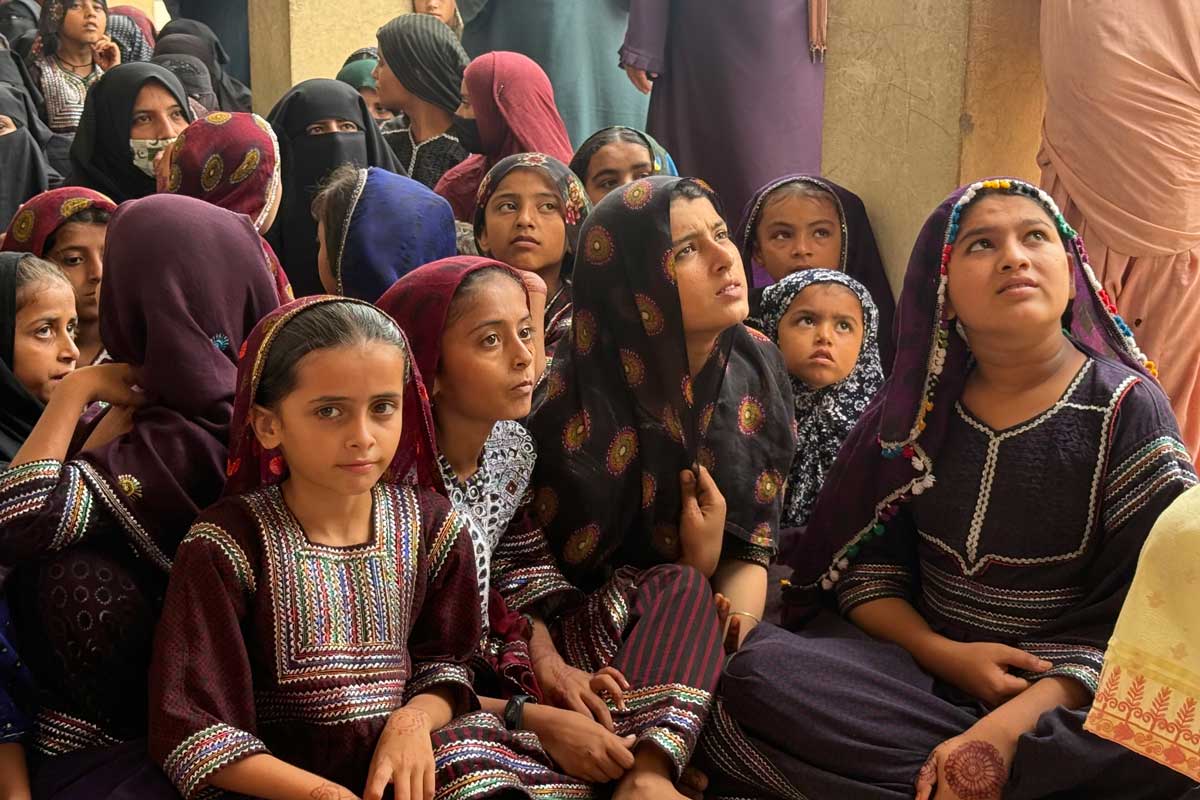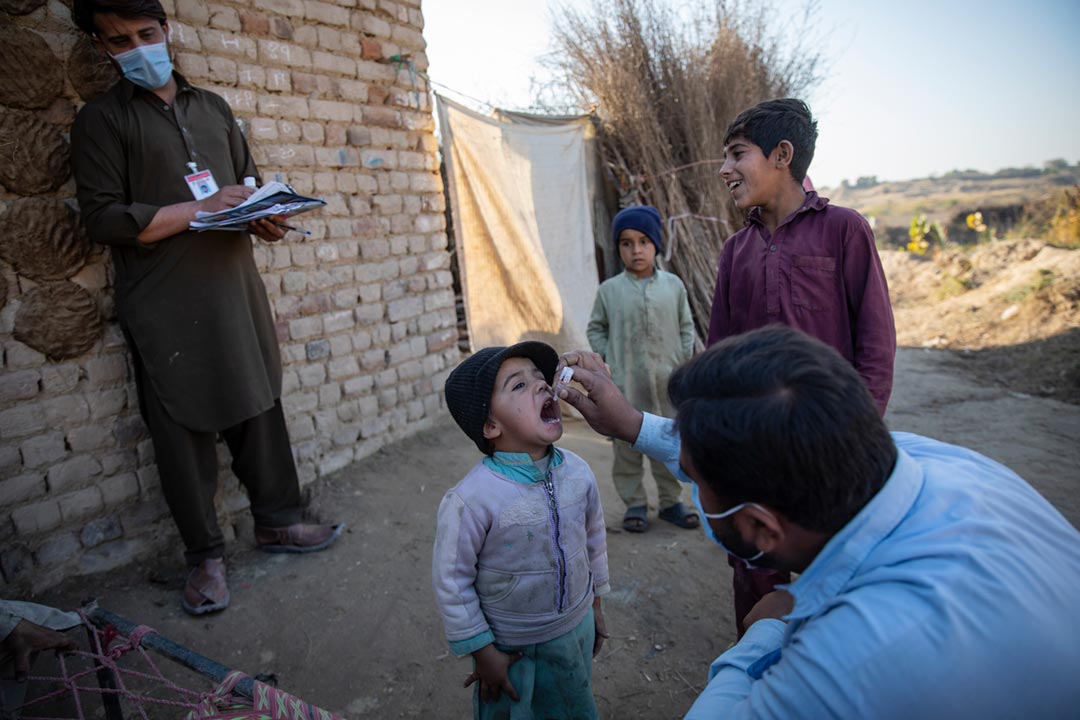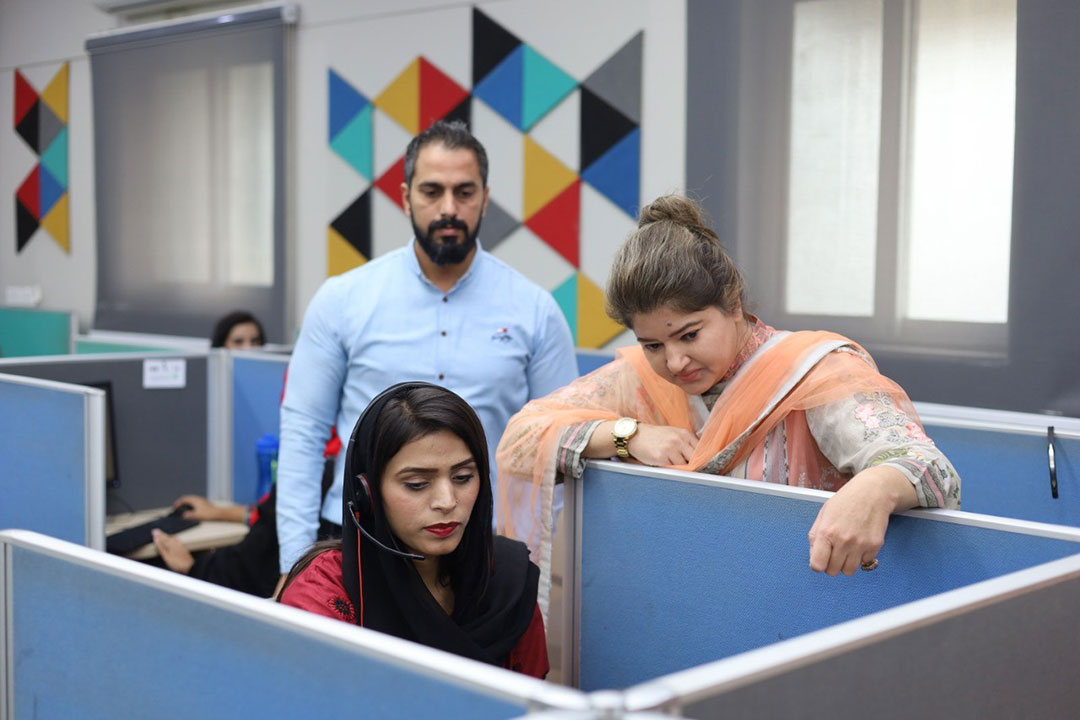“Reaching the unreached” in one of the last strongholds of poliovirus
In Pakistan’s most polio-troubled region, a new strategy sees encouraging successes.
- 24 October 2023
- 7 min read
- by Huma Khawar
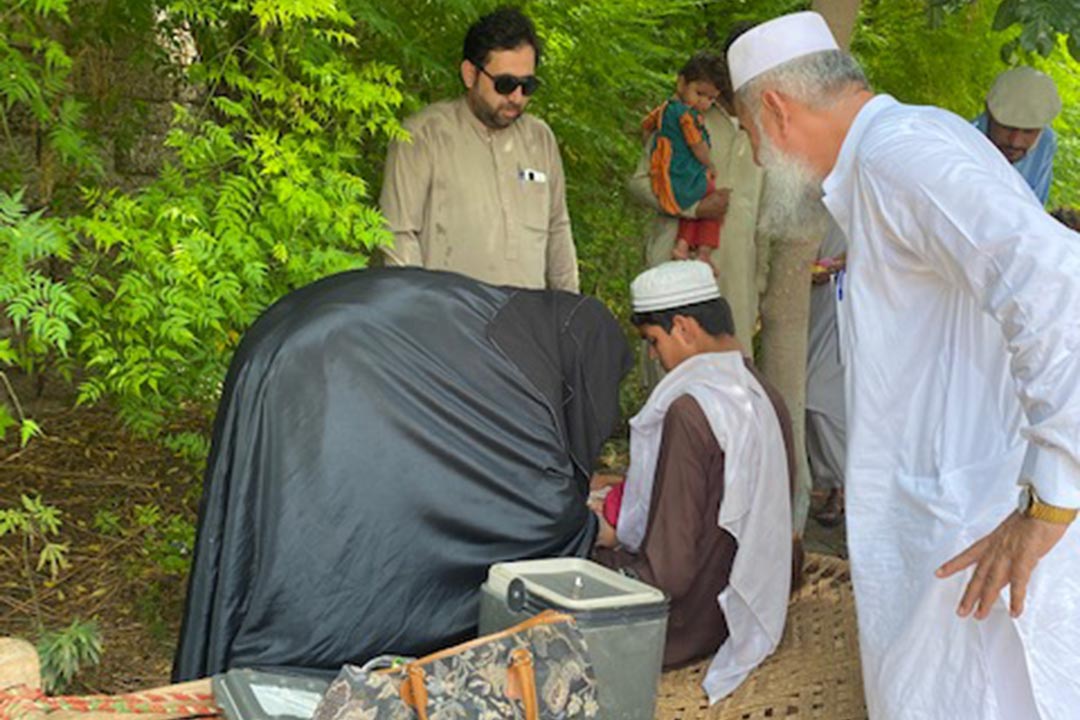
On 16 September, the Polio Lab at Pakistan's National Institute of Health confirmed a case of polio paralysis in an 18-month-old baby girl. Her name is R*, and she is Pakistan 's third patient with wild poliovirus type 1 (WPV1) this year, and the third to emerge from the same place: Bakakhel union council, in Khyber Pakhtunkhwa 's Bannu district. All three children were confirmed to be "zero-dose" – unreached with even the first dose of their basic childhood vaccines.
Polio 's stronghold
The southern Khyber Pakhthunkhwa (KP) region is known to workers from the national polio programme to be a hotspot of vaccine resistance. It 's also seen no fewer than 120 cases of wild polio over the last five years – nearly half the nationwide caseload for the same period.
"Low rates of routine immunisation coupled with malnutrition and poor or inadequate sanitation present the perfect climate for the poliovirus to thrive."
– Dr Shahzad Baig, Coordinator for the National Emergency Operations Centre for Polio Eradication
That means this corner of the world has an outsize importance to the global campaign to snuff out the poliovirus, which has teetered, frustratingly, on the brink of success for years.
In the 34-year lifetime of the Global Polio Eradication Initiative (GPEI), global polio incidence has reduced by 99.9%. Pakistan is one of just two countries, along with neighboring Afghanistan, that remains endemic for the wild-type pathogen.
JB*, baby R 's father, was inconsolable when he learnt of her diagnosis, but it was too late. According to Rahimullah, the vaccinator working in UC Bakakhel, JB had been vehemently opposed to polio vaccinations for children, terming them "a conspiracy of the west to halt Muslim population and to kill our children".
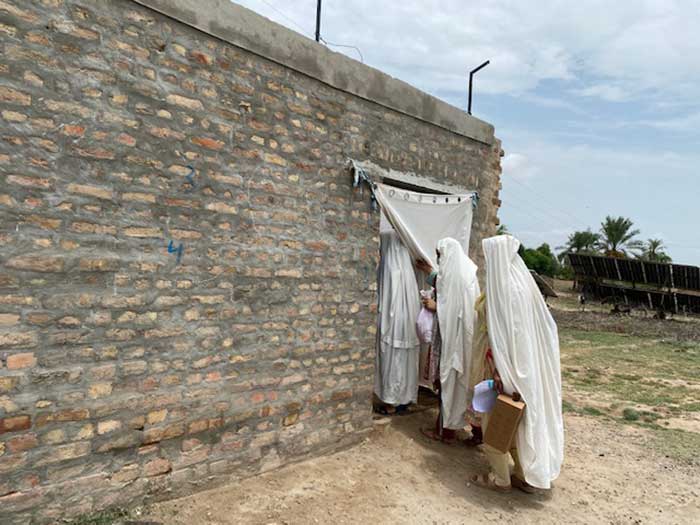
Credit: Huma Khawar
"Low rates of routine immunisation coupled with malnutrition and poor or inadequate sanitation present the perfect climate for the poliovirus to thrive," said Dr Shahzad Baig, Coordinator for the National Emergency Operations Centre for Polio Eradication, describing the prevailing challenges in Bannu and the six other endemic districts of southern Khyber Pakhtunkhwa. "Interrupting transmission in these seven polio-endemic districts is essential to eradicating the disease," he continued.
So close, but still so far
Pakistan has made big strides in stemming the spread of the poliovirus, but southern KP is a particular challenge. It's a region fraught with operational and security challenges. Moreover, the seven districts Dr Baig refers to are a hub for a population in motion: large groups of people move through from bordering Afghanistan, and through the so-called "tribal belt" of the province, and then inward into other Pakistani provinces.
The 20 cases of WPV1 that cropped up in this region in 2022, of which 17 were found to be children who had never been vaccinated for any vaccine-preventable disease, along with successive confirmations of virus circulating in sewage samples, confirm that the battle on this frontline is far from won.
Reaching the unreached
This year, Pakistan 's health agencies tried a new tack. In a three-phase campaign dubbed "Reaching the Unreached," (RUR), led by the Federal Directorate of Immunisation (FDI), which coordinates Pakistan 's Expanded Program on Immunization, or EPI, the country aimed to halt transmission of poliovirus while also boosting immunity against other vaccine-preventable diseases across 69 particularly high-risk union councils in the endemic districts of southern KP.
The campaign, of which phases one and two were completed in July and September, has targeted all children under the age of two who had not received any vaccines, those who were due for vaccination, and those who had missed previous doses with routine jabs. All the antigens in Pakistan 's routine immunisation portfolio have been in play.
Have you read?
Marking something of a departure from business-as-usual, children up to five years of age were also administered Oral Polio Vaccine (OPV) doses as part of the drive. In Pakistan, polio vaccination, conducted by the Polio Eradication Initiative (PEI), has historically followed a different calendar than immunisation with the "routine" antigens handled by EPI.
The health system hoped that integration would not only offer an opportunity to save costs, but also to extend reach by boosting the acceptability of vaccination. The massive integrated measles-rubella (MR) campaign in 2021, which saw 32 million under-fives given polio drops as 95 million children received measles and rubella protection, furnished a precedent.
Changing minds
Until just a few months ago, Nagina Bibi, a resident of village Dumail on the outskirts of Bannu district, was what polio workers termed a “chronic refusal”. She consistently refused to allow her children to be vaccinated against the paralysing virus.
An alema, or female religious scholar, Bibi is an influential figure in her neighbourhood. Other parents followed her lead and opted out of polio vaccination too. Bibi’s misgivings were grounded in part on a misperception concerning a lopsided emphasis on polio. Why was the health system repeatedly showing up at her door proffering polio drops, when pneumonia, typhoid and measles appeared to her to threaten the community’s children with far more regularity?
And so, on a hot day in July, during the first phase of the RUR drive, a woman counsellor called Semab Begum donned a white burqa and set off to Dumail with her colleague Aasiya Sadiq, a female vaccinator, to meet Bibi at the request of the District Health Officer.
“The only way we could convince her to get her kids administered polio drops was to first get her children immunised for other diseases, which was easier since the EPI and PEI were working in tandem,” said Begum, who works for PHC Global, an NGO working in Bannu with Gavi support.
Begum hopes that Bibi’s change of heart will cause a positive chain reaction – that she will now impress upon others to get their kids immunised as well.
Early promise
The campaign is not yet over – a third round is anticipated. However, early indicators suggest the integration strategy appears to be paying off. According to an independent third-party assessment by WHO, approximately 27,000 children under two years of age received their overdue and missed routine vaccines during the first two phases of the campaign. Furthermore, approximately 269,000 children under the age of five received one or two doses of OPV.
According to an independent third-party assessment, coverage for all antigens increased by a significant margin, ranging from 17% for the anti-tuberculosis BCG jab, which saw the slightest rise, to a hefty 55% bump for the second dose of the measles-rubella vaccine.
Dr Rana Mohammad Safdar, heading the EPI-PEI Synergy Working Group at Federal Directorate of Immunization (FDI) said, "Strengthening the EPI is an integral pillar for polio eradication. Reaching the Unreached (RUR) provided a perfect model for reaching out to the unreached children in the most difficult terrain and circumstances."
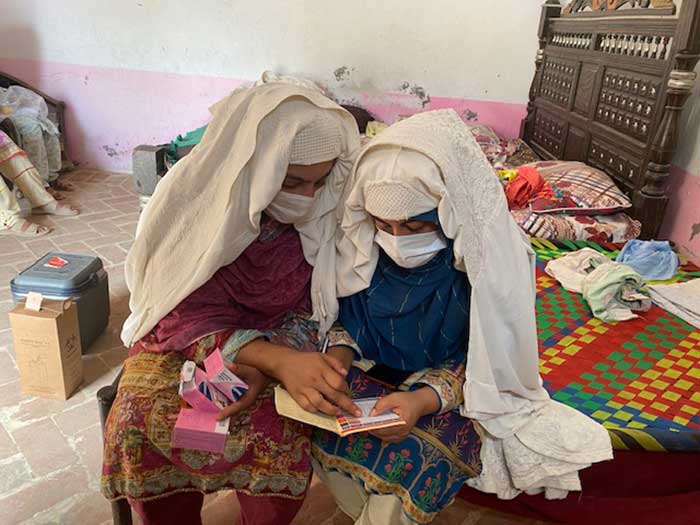
Credit: Huma Khawar
The sister organs have different strengths, and those strengths represent opportunities for mutual benefit. PEI has a more upfront presence in communities, as polio vaccinators go home to home. "By having access to parents at their very doorstep," Dr Safdar explained, "the PEI team can raise awareness about other vaccines available free of cost and which are on the routine immunisation schedule, but for which parents will have to take their kids to centres, or at least up to the mobile outreach service delivery in their neighbourhood."
The EPI's jabs, meantime, seem to find a readier uptake than polio drops, due to the complex history between the community and the polio campaign. "Routine immunisation has great acceptability in the community, but shortage of human resource has been a huge challenge," said Dr Sajid Khan, EPI coordinator in Bannu. "But now, with the availability of necessary resources, including vaccines, transportation, and trained healthcare workers, we could access the unreached populations effectively."
Pleasantly surprised at the 101% coverage against targets achieved in the 16 UCs of Bannu in July, which was followed by a 103% coverage during the second round in September, Dr Khan said the addition of social mobilisers, funded by PEI, working alongside vaccinators, made a huge difference. "No government vaccinator has the time to sit with the caregiver to explain to them the benefits of vaccination," he said.
"Now, with the availability of necessary resources, including vaccines, transportation, and trained healthcare workers, we could access the unreached populations effectively."
– Dr Sajid Khan, EPI coordinator in Bannu
A bottle of Panadol given to parents with instructions to use the medicine if the child developed fever, increased both trust and nudged uptake upwards. This small initiative during the RUR, he said, was "was not an incentive, but a need".
The remaining unreached will be reached out to in the coming phase. "We will ensure their follow-up in the third round of RUR," said a very hopeful Dr Khan.
"One of the key distinctions of RUR is its focus on zero-dose children up to the age of five years. FDI and PEI are working together in identifying and targeting these vulnerable children and providing them with initial doses of all antigens as per EPI schedule, including polio vaccine," emphasised Dr Muhammad Ahmad Kazi, director general of the FDI.
To achieve success, believes Dr Kazi, the focus of all partners and stakeholders must be on these most consequential geographies. "Effective and efficient immunisation services accessible to all people are an essential part of Primary Health Care (PHC)," he said.
* Names omitted to protect their privacy.
